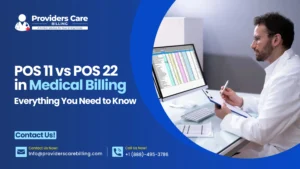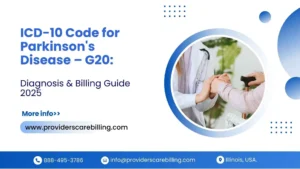A crucial part of ensuring patient safety in healthcare is the verification of nurses and doctors through medical credentialing. This process confirms their proper training, certification, and professional experience. Financially, organisations face challenges receiving reimbursement from Medicaid/Medicare without medical credentialing specialists.
The significance extends to working with healthcare software solutions – lacking medical credentialing can hinder access. From the perspective of a medical practice or healthcare provider, thriving in the industry is nearly impossible without attention to medical credentialing. According to Healthcare Innovation, it is increasingly vital as it instils patient confidence in their chosen healthcare providers. Now, let’s explore the role of a healthcare credentialing specialist and the key responsibilities in this essential healthcare process.
Historical Background of Credentialing
The medical credentialing process has significantly improved since 1,000 BC when the Cult of Zoroaster mandated it. The Cult’s system required physicians to cure three heretics, with their qualification established by the survival of all three patients. While we have come a long way since the ancient Persian approach, the underlying premise remains: ensure that medical practitioners are qualified to treat patients. Understanding the historical context of credentialing processes is critical for healthcare organisations as they consider the future of healthcare credentialing.
Key Components of Credentialing
1- Provider Education and Training
Healthcare credentialing begins with an assessment of a provider’s educational background. A healthcare professional carefully verifies relevant degrees, certifications, and training fulfilment. This ensures that medical personnel have the appropriate knowledge and skills. What does a healthcare credentialing specialist do? They painstakingly evaluate academic qualifications to provide the most outstanding level of education while improving patient safety and quality services.
2- Licensing and Certifications
A critical part of credentialing is ensuring clinicians have proper licenses and certificates. A medical credentialing specialist verifies these documents to verify they meet regulatory requirements. This crucial step ensures patient safety by validating that healthcare personnel are licensed to practice. A specialist’s responsibilities include conducting extensive license and certification checks, which help maintain the healthcare system’s integrity.
3- Professional Experience and Competence
Credentialing extends beyond education; it delves into a provider’s practical experience and competence. A medical specialist assesses a healthcare professional’s work history and evaluates their competency in delivering safe and effective care. This comprehensive scrutiny guarantees that practitioners are educated and experienced, fostering the future of healthcare credentialing grounded in expertise and proficiency.
4- Ongoing Professional Development
Healthcare is dynamic, with continuous advancements requiring professionals to stay abreast of new developments. Credentialing ensures ongoing professional development by assessing a provider’s commitment to staying updated. What does a healthcare credentialing specialist do? They scrutinise participation in conferences, training programs, and other learning opportunities.
Importance of Credentialing in Healthcare
Ensuring Patient Safety
In the complicated world of healthcare, patient safety is critical. Credentialing is essential to ensure that only qualified and competent personnel provide patient care. A healthcare credentialing specialist painstakingly validates healthcare professionals’ qualifications, licenses, and credentials, reducing the risk of poor training or unethical activities.
Boosts Patients Confidence
The psychological state of patients significantly influences the healing journey. Patients who trust the role of healthcare credentialing specialist are more likely to adhere to medical recommendations, whether it involves adjusting their diet, engaging in physical activity, trying new medications, or undergoing procedures. Confidence in healthcare providers improves patient compliance and fosters loyalty, reducing the likelihood of patients seeking alternative, more competent practitioners.
Maintaining Quality Standards
Quality healthcare relies on the competence of its practitioners. Credentialing safeguards the standards of care by scrutinising healthcare professionals’ education, training, and experience. This rigorous process assures that only individuals with the necessary skills and knowledge contribute to maintaining high-quality healthcare services. What are the job Responsibilities of a Credentialing Specialist?
Credentialing specialists meticulously review and verify healthcare providers’ education, training, licenses, and certifications to uphold quality standards.
Compulsory for Compensation
Obtaining medical credentials is indispensable for securing reimbursement from insurance providers. Timely completion of documentation ensures that a newly hired nurse or doctor can promptly commence providing services. Many organisations mandate applicants to have their documentation prepared well in advance.
This is not a task to delay, and the timeline may differ across states due to variations in regulations and credentialing laws. Both private health insurers and government programs like Medicare and Medicaid require proof of a medical credentialing specialist before permitting your staff to interact with patients.
Enhancing Healthcare Reputation
Credentialing contributes significantly to building and maintaining a positive reputation for healthcare providers. Patients are more likely to trust healthcare organisations that demonstrate a commitment to excellence through a thorough credentialing process.
A strong reputation attracts patients, and fosters trust among stakeholders and the community. The role of a healthcare credentialing specialist is pivotal in safeguarding and enhancing the reputation of healthcare providers by ensuring the highest standards of professional competence.
Regulatory Compliance
Adherence to regulatory requirements is crucial for healthcare organisations. It ensures compliance with various regulatory bodies, accrediting organisations, and state laws. This protects healthcare institutions from legal repercussions and fosters an environment of transparency and accountability.
A medical credentialing specialist ensures that healthcare providers comply with regulatory standards, navigating the complex landscape of medical regulations.
Final Thoughts
We conclude that credentialing and the role of healthcare credentialing specialists is like a superhero check for healthcare providers. It’s a way to ensure they have the right skills, education, and experience to care for us. Imagine going to a doctor who doesn’t know much about treating people – that wouldn’t be good, right?
Credentialing helps prevent that. It’s like a safety net for patients. The job responsibilities of a credentialing specialist are thoroughly checked and approved. So, the next time you visit a doctor or a hospital, remember that credentialing is like their superhero cape, ensuring you get the best and safest care possible. Stay healthy, and trust in the power of credentialing.
Partner with us, a trusted medical billing and coding company, for seamless healthcare reimbursement.





